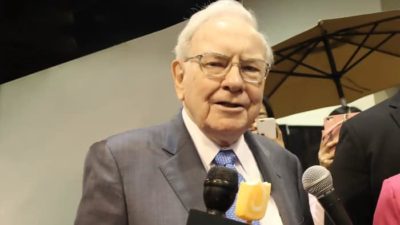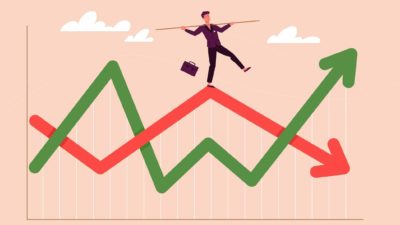1) So much for the so-called Santa Rally…
In Wednesday's trade, the ASX 200 has followed United States markets lower as a host of Wall Street executives warn of tougher times ahead.
Goldman Sachs' CEO David Solomon said a US recession in 2023 is a possibility and that it should be no surprise that job cuts could be on the table.
JPMorgan Chase's Jamie Dimon, in between having yet another dig at cryptocurrencies, likening them to pet rocks, warned of a mild to hard US recession next year.
Bank of America CEO Brian Moynihan said the bank has slowed hiring.
And Morgan Stanley said it will reduce its global workforce by about 2,000.
"We have not yet seen the bottom on equity prices," said Lauren Goodwin, portfolio strategist at New York Life Investments on Bloomberg. "While this phase of equity market volatility is likely to end in the next few months, earnings have not yet adapted to a recessionary environment."
The big US investment banks are about 10,000 miles away from the home of the ASX, but the old saying "when Wall Street sneezes, the ASX catches a cold" usually rings true.
2) For a change, the stock market moved in response to the upcoming economic slowdown – something that will impact corporate earnings – rather than the move in bond yields, which in turn reflect future interest rate expectations.
Although there are the inevitable outliers, consensus is that central banks will be finished raising interest rates at or before the middle of next year.
In other words, the heavy lifting on interest rates has already been done. Next up is estimating the impact it will have on corporate profitability.
You could argue/guess that most of the coming economic slowdown is already priced into many stocks. I've repeatedly used the example of high-quality retailer JB Hi-Fi Limited (ASX: JBH), which trades on a valuation that is expecting "bad things" ahead.
3) The stock market looks forward, with discretionary consumer stocks like JB Hi-Fi likely to move higher before earnings have bottomed for this economic cycle.
As to where they will bottom – and the bottom could still be higher than current levels of profits – is the great unknown.
As to when they will bottom, the pundits are queuing up to take a guess.
Over in the US, quoted on Bloomberg, David Bailin, chief investment officer at Citi Global Wealth, said markets have never bottomed before a recession has begun. "If there is in fact going to be a recession next year, if we are going to see a period of unemployment rising in the country, then we would expect that markets would have to settle down from where they are today over the course of the next several months."
Back in Australia, Bell Potter's Richard Coppleson said on Livewire the bear market is not over yet. The worst is likely still ahead of us.
Coppleson said we could see a lot of market pain at the start of the year, with a low in mid-March 2023.
"The patterns of the past suggest we're coming close to the end of the current rate rise cycle and the bear market. If March 2023 becomes the final market low, and the start of the bull market run, investors may find opportunities there. They'll need to have a strong stomach though. The evidence for a change will take time to appear. Bear markets don't last forever after all."
Writing in its November 2022 monthly report, the 1851 Emerging Companies Fund believes we will not see a hard landing for the consumer during 2023, and in a contrarian bet, has been progressively increasing its weighting to the retail sector.
"Our expectation is better days lie ahead for the Australian small cap market and we are progressively rotating the portfolio to take advantage as we enter 2023."
They are definitely getting in ahead of the game… which is the game when it comes to stock picking.
4) So what's an investor to do?
I'd suggest four things…
- Keep a healthy cash balance. These days you get paid for waiting. Plus, it helps you sleep well at night. I'm quite cashed up having recently received funds from a company that was bought out, I have more to come from my Nearmap Ltd (ASX: NEA) shares (also acquired), plus even more to come from my MSL Solutions Ltd (ASX: MSL) shares (in the process of being acquired).
- Don't sell out of any existing positions just because you think markets might tumble further between now and March 2023. Jumping in and out of the market only makes money for your broker. You'll very likely get the timing very wrong.
- Keep adding to existing positions – or take out starter positions in new holdings – if you think are well placed to weather an economic slowdown, and trade on modest valuations. Easier said than done but hey, that's investing.
- There's unlikely to be a time when you should go "all in" on a stock or indeed into the market. But you can certainly look to put more money to work should the market fall another say 10% to 20% from here. The problem is, when it happens, that's hard to stomach, because inevitably, you can't pick the bottom, and new money invested in the market can quickly be in the red.
The time to commit to such a course of action is now, when things are relatively calm. Something like, if the markets fell by say 20% from here, committing to invest at least 50% of your cash balance into stocks. It'll be scary, but in five years time, it'll very likely look a brilliant move.









